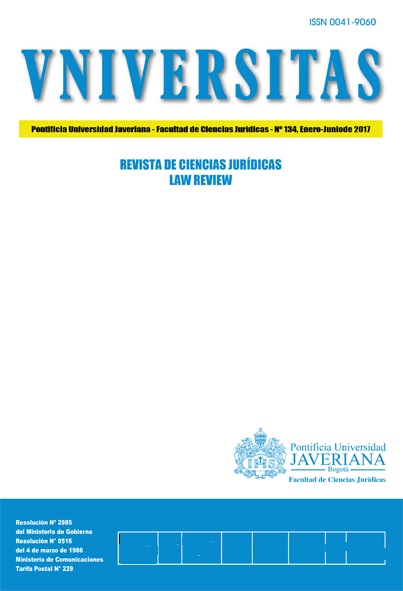Abstract
In Colombia, Law 1116 of 2006 is the special regulation that governs the insolvency regime, in its modalities of reorganization and judicial liquidation, regulated by the regulations compiled in Single Regulatory Decree 1074 of 2025 and the recent Law 2437 of December 12, 2024, which incorporated Legislative Decree 560 of 2020 as permanent legislation, except for articles 1, 3, 7, 15, 16, Section 3 of Paragraph One of article 8 and Title III of the aforementioned decree. As well as Legislative Decree 772 of 2020, except for articles 1, 7, 8, 13, 15, 16, and 17.
The judicial liquidation process seeks to protect credit, always under the criterion of adding value, to fulfill its purpose, which is to achieve a prompt and orderly liquidation, seeking to leverage the debtor’s assets for the benefit of its creditors, and seeking to honor the company’s liabilities, up to the extent of the assets. This is done by applying, among others, the principles of equality and objective and subjective universality that govern bankruptcy proceedings.
The described purpose is sometimes not achieved when the bankrupt’s assets are used to pay creditors whose contracts remain in effect, even when the insolvency statute mandates the termination of all employment contracts without any judicial or administrative authorization. When this occurs, certain legal concerns arise, including determining whether, given that the company is undergoing judicial liquidation, the right to union association enshrined in the Colombian Political Constitution prevails, or, on the contrary, the right to equality enshrined in the same constitutional legal system should prevail.
Argentina. Ley 24522 de 1995. Régimen legal de concursos y quiebras. Julio 20 de 1995. Fecha de sanción julio 20 de 1995. Boletín Nacional. Agosto 9 de 1995.
Argentina. Ley 26684 de 1995. Modificación de la Ley Nº 24.522. Fecha de sanción junio 1 de 2011. Promulgada junio 29 de 2011.
Colombia. Ley 57 de 1887. Art. 27. Código Civil. Abril 15 de 1887.
Colombia. Decreto 2663 de 1950. Adoptado por el Decreto Ley 2663. Agosto 5 de 1950. Sobre Código Sustantivo del Trabajo. Agosto 5 de 1950. D.O. n.° 27.407.
Colombia. Decreto 410 de 1971. Por medio del cual se expide el Código de Comercio. Marzo 27 de 1971. D. O. n.° 33.339.
Colombia. Ley 1116 de 2006. Por la cual se establece el Régimen de Insolvencia Empresarial en la República de Colombia y se dictan otras disposiciones. Diciembre 27 de 2006. D. O. n.° 46.494.
Colombia. Ley 2437 de 2014. Por medio del cual se establece la legislación permanente de los Decretos Legislativos 560 y 772 de 2020. Decretos reglamentarios 842 y 1332 de 2020 en materia de insolvencia empresarial y se dictan otras disposiciones. Diciembre 12 de 2024. D. O. n.° 52.968.
Colombia. Ley 57 de 1887. Arts. 2495. Código Civil Colombiano. Abril 15 de 1887.
Colombia. Oficio 220-142812. Superintendencia de Sociedades. Julio 18 de 2016.
Constitución Política de Colombia [C. P.]. Art. 29. Julio 7 de 1991, [Colom.].
Constitución Política de Colombia [C. P.]. Art. 333. Julio 7 de 1991, [Colom.].
Constitución Política de Colombia [C. P.]. Art. 334. Julio 7 de 1991, [Colom.].
Constitución Política de Colombia [C. P.]. Art. 39. Julio 7 de 1991, [Colom.].
Corte Constitucional de Colombia [C. C.], abril 5, 2000, M. P.: Alejandro Martínez Caballero, Sentencia C-381 de 2000, Referencia: expediente D-2551, [Colom.].
Corte Constitucional de Colombia [C. C.], febrero 10, 2010, M. P.: Nixon Torres Cárcamo, Sentencia de tutela T-071 de 2010, Referencia: expediente D-7128, [Colom.].
Corte Constitucional de Colombia [C. C.], febrero 10, 2010, M. P.: Nixon Torres Cárcamo, Sentencia de tutela T-071 de 2010, Referencia: expediente D-7128, [Colom.].
Corte Constitucional de Colombia [C. C.], julio 21, 2011, M. P.: Jorge Iván Palacio Palacio, Sentencia de tutela T-568 de 2011, Referencia: expediente T-2768210, [Colom.].
Corte Constitucional de Colombia [C. C.], marzo 20, 2012, M. P.: Mauricio González Cuervo, Sentencia C-220 de 2012, Referencia: expedientes T-3.259.562, T-.3.262.525 y T-3.262.555, [Colom.].
Corte Constitucional de Colombia [C. C.], octubre 2, 2017, M. P.: Gloria Stella Ortiz Delgado, Sentencia T-606 de 2017, Referencia: expediente T-6.210.639, [Colom.].
Corte Suprema de Justicia [C. S. J.], Sala de Casación Laboral, febrero 27, 2013, Radicación n.° 36182, Acta n.° 006, M. P.: Luis Gabriel Miranda Buelvas, [Colom.].
Corte Suprema de Justicia [C. S. J.], Sala de Casación Laboral, febrero 27, 2013, M. P.: Francisco Escobar Henríquez, Radicación n.° 7393, Sentencia 7393.1995, Acta n.° 30 [Colom.].
Marcos Andrés Rivera Cesín, Los derechos del trabajador ante la insolvencia del trabajador (trabajo de grado) (Universidad de Chile, 2017). https://repositorio.uchile.cl/bitstream/handle/2250/146837/Los-derechos-del-trabajador-ante-la-insolvencia-del-empleador-an%c3%a1lisis-a-los-cambios-introducidos-por-la-Ley-no-20.720-en-materia-laboral.pdf?sequence=1&isAllowed=y

This work is licensed under a Creative Commons Attribution 4.0 International License.



